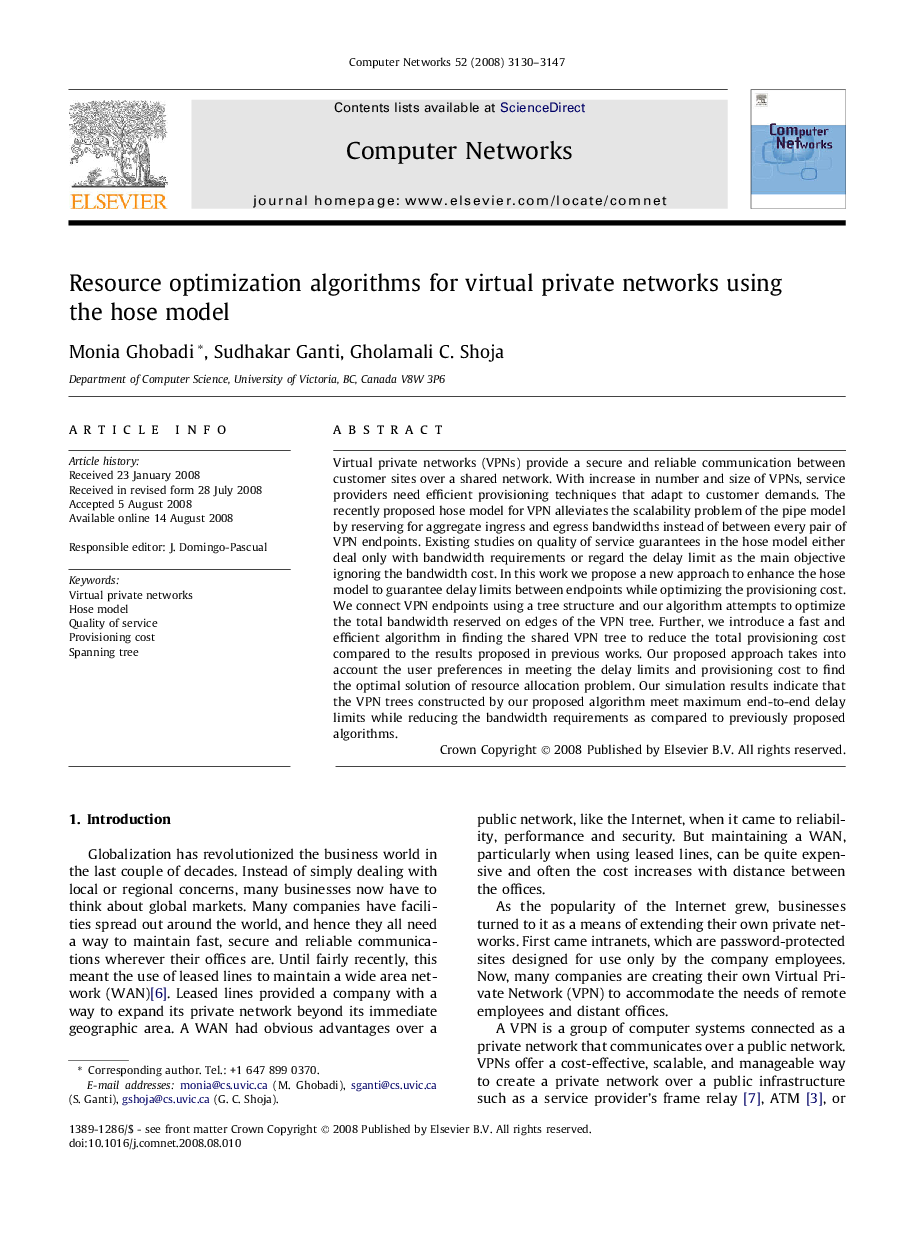| Article ID | Journal | Published Year | Pages | File Type |
|---|---|---|---|---|
| 452522 | Computer Networks | 2008 | 18 Pages |
Virtual private networks (VPNs) provide a secure and reliable communication between customer sites over a shared network. With increase in number and size of VPNs, service providers need efficient provisioning techniques that adapt to customer demands. The recently proposed hose model for VPN alleviates the scalability problem of the pipe model by reserving for aggregate ingress and egress bandwidths instead of between every pair of VPN endpoints. Existing studies on quality of service guarantees in the hose model either deal only with bandwidth requirements or regard the delay limit as the main objective ignoring the bandwidth cost. In this work we propose a new approach to enhance the hose model to guarantee delay limits between endpoints while optimizing the provisioning cost. We connect VPN endpoints using a tree structure and our algorithm attempts to optimize the total bandwidth reserved on edges of the VPN tree. Further, we introduce a fast and efficient algorithm in finding the shared VPN tree to reduce the total provisioning cost compared to the results proposed in previous works. Our proposed approach takes into account the user preferences in meeting the delay limits and provisioning cost to find the optimal solution of resource allocation problem. Our simulation results indicate that the VPN trees constructed by our proposed algorithm meet maximum end-to-end delay limits while reducing the bandwidth requirements as compared to previously proposed algorithms.
